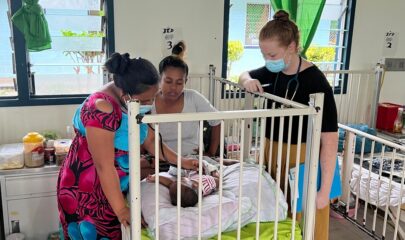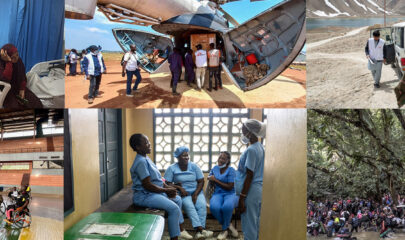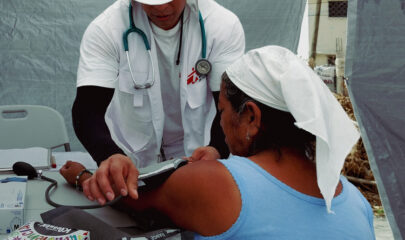Pakistan is considered one of the countries most vulnerable to the impacts of climate change. Its southwestern Balochistan province is particularly exposed as a result of consistent warming trends in several of its cities as well as the growing number of people experiencing food insecurity, driven by climate-related factors like drought, locust infestations and flooding. Meanwhile, insecurity, poverty and a lack of infrastruc- ture compound people’s vulnerability.
In four districts of Balochistan, Doctors Without Borders/Médecins Sans Frontières (MSF) supports health facilities providing care to more than 12,000 expectant mothers and approximately 10,000 children suffering from malnutrition each year.
“It is important to maintain cool tempera-tures in these facilities for patient and health worker comfort and safety, and to stop medications and equipment from degrad- ing,” says Kady Cowan, lead for the Climate Smart MSF project.
Maintaining the right temperature is a challenge given frequent power shortages in temperatures that can reach 50°C in the summertime. Increasing demands on a de- teriorating energy distribution system mean that people in Balochistan now face power outages of up to 18 hours a day.
In order to address this problem, MSF has installed solar panel systems at the facilities it supports in three locations across the region: Dera Murad Jamali, Chaman and Kuchlak. Supplemented by grid or genera- tor electricity, these systems provide uninter- rupted power for lighting, air conditioning and fans, and water pumping and cooling, while also averting more than 50,000 kilo- grams of carbon emissions per year.
“The solar power systems also reduce reli- ance on fossil fuel and fuel-fed generators,” says Cowan, “minimizing fuel-related costs and helping to improve local air quality.”
The Balochistan government has an- nounced plans to adopt more solar technology throughout the public sector, signalling opportunities for cooperation and skills transfer between MSF and others in the community.
A warming world and degraded environ- ment exacerbate health and humanitarian concerns. The work of Cowan and her team in Climate Smart MSF is one initia- tive helping to translate commitment into action. It aims to help scale environmental sustainability solutions across MSF’s medical humanitarian response.
“MSF is working to reduce our environmen- tal footprint to be responsible to the patients we aim to support, to our global workforce, and the community beyond,” she says. “It comes down to our imperative to ‘do no harm.’ We recognize the social, health and economic benefits of more accountable and responsive humanitarian operations.”


